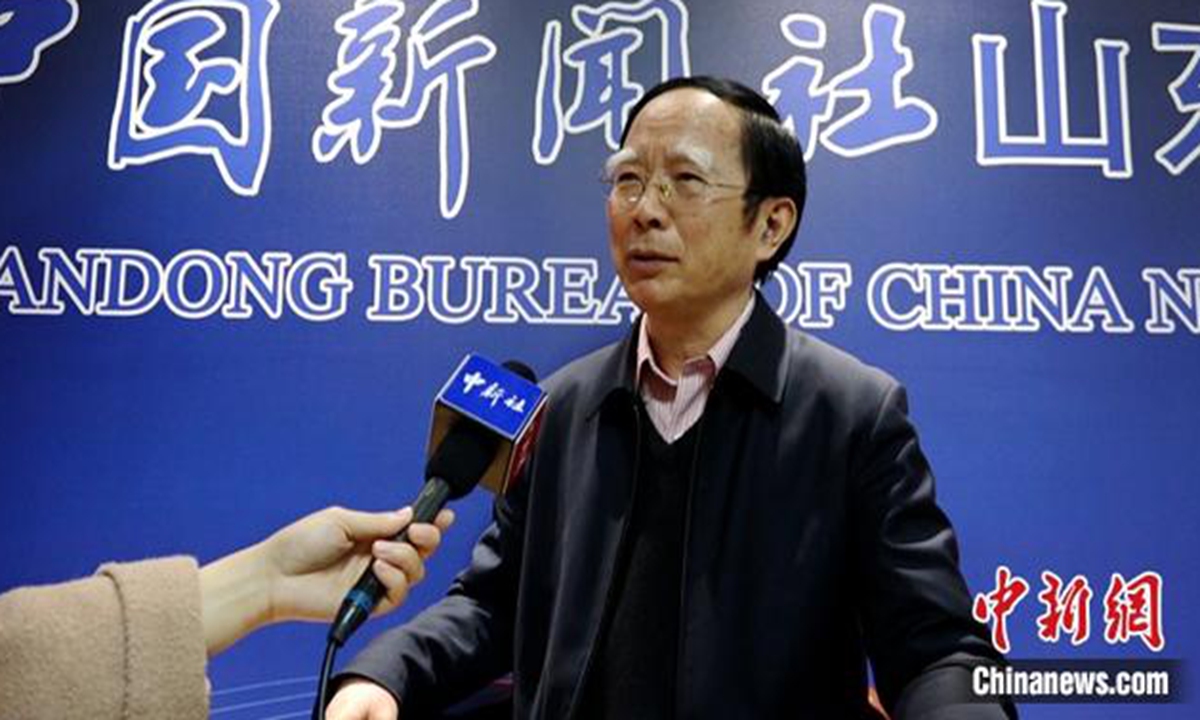
Wang Xuedian, executive dean of Advanced Institute of Confucian Studies, Shandong University, and member of the Standing Committee of the Chinese People's Political Consultative Conference (CPPCC) National Committee, receives interviews. Photo: China News Service.
To consolidate China's poverty alleviation achievements, a senior member of China's political advisory body advocated that the country should popularize 12-year compulsory education in former deeply impoverished areas, an upgrade from the current nationwide nine-year compulsory education policy.
China, with the largest population in the world, has lifted all rural poor people out of extreme poverty under the current standard, with
nearly 100 million poor people shaking off poverty in the past years.
Wang Xuedian, executive dean of the Advanced Institute of Confucian Studies, Shandong University, and also member of the Standing Committee of the Chinese People's Political Consultative Conference (CPPCC) National Committee, made the suggestion in a recent interview with the China News Service ahead of the opening of the national two sessions, China's main annual legislative meetings.
He said that since high school is not included in compulsory education, before poverty alleviation, many poor families in deeply impoverished areas could not afford education costs, leading to many students dropping out.
"The state can take the lead in launching a pilot project to extend the nine-year compulsory education to include the senior high school stage in former poverty-stricken areas, giving more poor students opportunities to continue their education," Wang noted.
We need to "fully consider the specific situation of each family, and do this work precisely," by implementing an east-west cooperation action plan for vocational education, carrying out vocational education and skills training, and making colleges and universities to recruit more students from impoverished areas, Wang said to the media.
In some ethnic areas in China, high school education has been included in the scope of free education. Since autumn 2011, Tibet Autonomous Region in Southwest China has implemented a free education policy for all high school education (including secondary vocational education).




